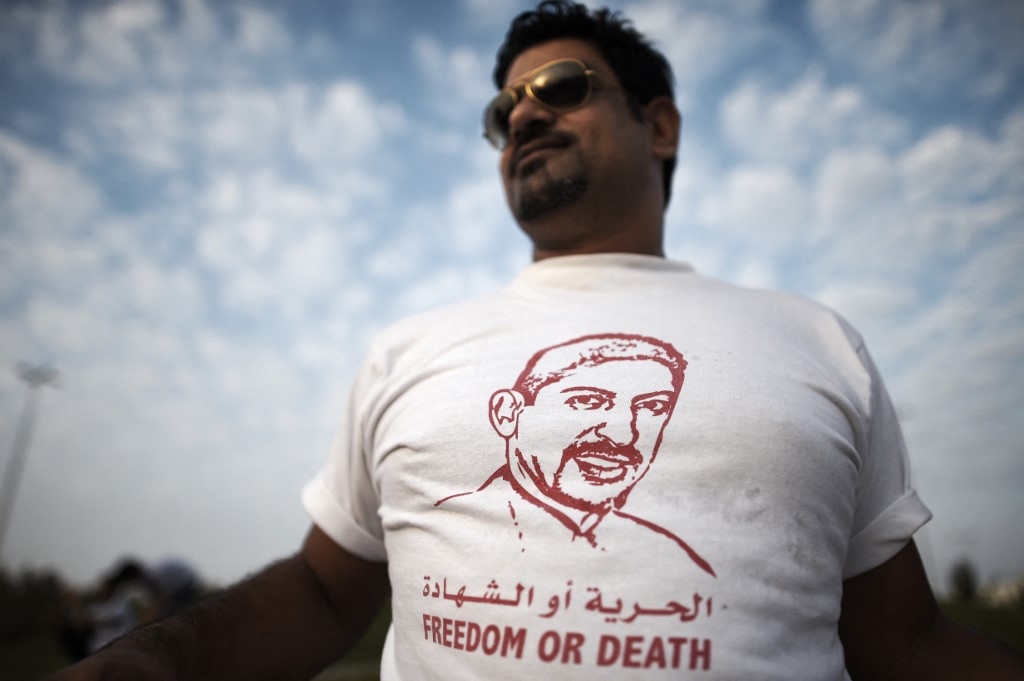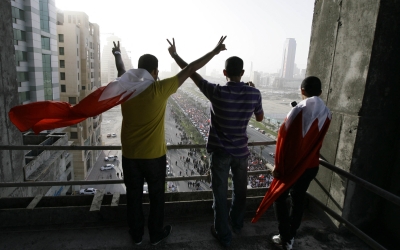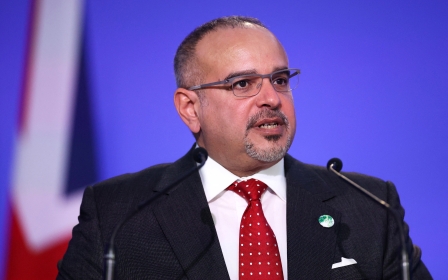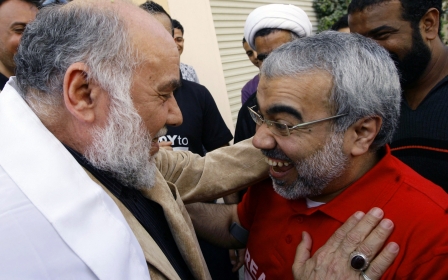Bahrain: Jailed activist Abdulhadi al-Khawaja goes on hunger strike after ban on family calls

Jailed Bahraini human rights defender Abdulhadi al-Khawaja has started a hunger strike after being informed that he has been banned from receiving calls from family, his daughter Zaynab said on Tuesday.
"My father, Abdulhadi al-Khawaja, has started a hunger strike today. The prison administration informed him that he is not allowed to make any calls. Having had no visitation rights for the past two years, these calls were his only communication with us," Zaynab al-Khawaja wrote on Twitter.
Khawaja, who turned 60 in April, is a prominent human rights defender and the former president of the Bahrain Centre for Human Rights. He has been in prison for 10 years, serving a life sentence for "organising and managing a terrorist organisation", among other charges.
His case was one of the first high-profile arrests following the beginning of pro-democracy protests in 2011 that sparked a widespread government crackdown in Bahrain.
Tens of thousands of people poured out onto the streets at the time, calling for democratic reforms, an end to discrimination against the majority Shia Muslim population and, eventually, the end of the 245-year rule of the Khalifa monarchy.
Mary Lawlor, the UN special rapporteur on the situation of human rights defenders, has called for the release of Khawaja on his 60th birthday, but her calls have been unheeded.
"He's serving a life sentence in prison for peacefully defending the rights of others," Lawlor said.
"He's been given an unfair trial and details of his torture have been corroborated by an independent commission of inquiry."
'Stalemate'
Earlier this year, Khawaja's other daughter, Maryam, told Middle East Eye that his family's access to him had been sporadic.
"You can never expect what's going to happen; you might have a call this week but then next week there isn't a call. So nothing is ever set in stone," she said during an interview in February.
Maryam has herself become one of the most prominent voices internationally for the Bahraini democracy movement. It's a profile that has forced her to live in exile due to a sentence she received in absentia for allegedly assaulting a police officer.
'There is absolute control over everything with regards to public space, access to freedoms and so on'
- Maryam al-Khawaja
"What we see today is what you could call a stalemate, but it goes beyond that because it's a situation that cannot continue the way that is it. There is absolute control over everything with regards to public space, access to freedoms and so on," she said at the time.
A report compiled in February by the London-based campaign group Bahrain Institute for Rights and Democracy for the 10th anniversary of the uprising said that, since 2011, at least 51 people had been sentenced to death in Bahrain.
According to the report, mass trials have become "commonplace" in the country, with 167 people sentenced in a single day in February 2019. Hundreds of activists have seen their citizenship stripped by the kingdom, with an estimated 300 currently denaturalised.
Middle East Eye delivers independent and unrivalled coverage and analysis of the Middle East, North Africa and beyond. To learn more about republishing this content and the associated fees, please fill out this form. More about MEE can be found here.





